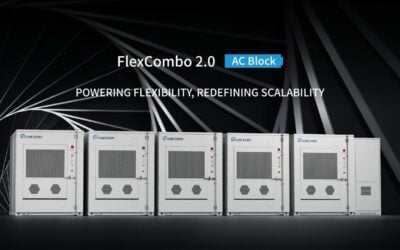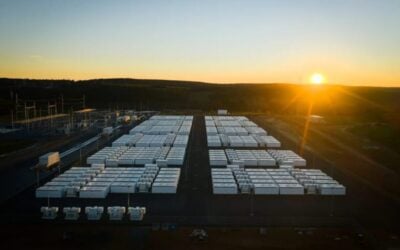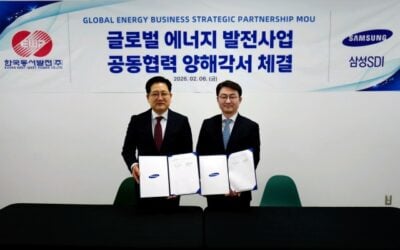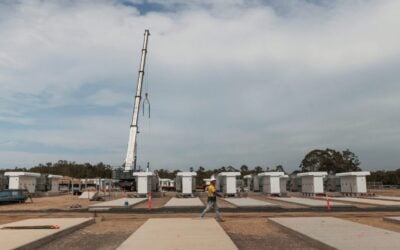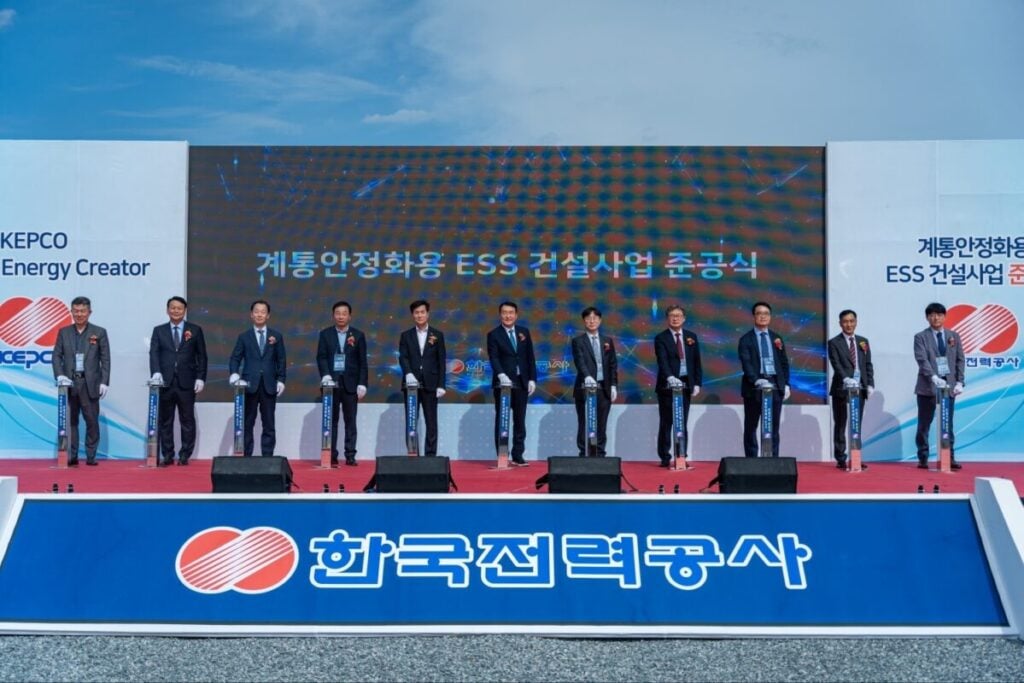
The Ministry of Trade, Industry and Energy (MOTIE) of South Korea will host a competitive solicitation for battery storage capacity in two locations.
The government ministry announced the plan this morning. It aims to procure 540MW of grid-connected battery energy storage system (BESS) technology to help resolve power grid shortages and control the output of power plants.
The capacity will be split between 500MW of large-scale BESS on the Korean mainland and 40MW of the technology on Jeju Island, a popular destination for domestic and international tourists.
The systems will be charged and store energy generated when renewable energy production is high and discharge it to their respective grid networks when demand is high and renewable generation is low.
Try Premium for just $1
- Full premium access for the first month at only $1
- Converts to an annual rate after 30 days unless cancelled
- Cancel anytime during the trial period
Premium Benefits
- Expert industry analysis and interviews
- Digital access to PV Tech Power journal
- Exclusive event discounts
Or get the full Premium subscription right away
Or continue reading this article for free
In the national 11th Basic Plan on Electricity Supply and Demand, finalised and confirmed by MOTIE in February this year, South Korea committed to quadrupling installed renewable energy capacity from 30GW in 2023 to 121.9GW by 2038.
Interim targets include 55.7GW of solar PV and 18.3GW of wind power capacity by 2030. This would take the share of renewable energy from around 10% in 2023 to 21.6% by the end of the decade.
The Institute for Energy and Economic Analysis (IEEFA) said following the confirmation of the plan that while the ambition to reduce reliance on fossil fuels and increase the share of renewables was encouraging, it fell short of the 2023 United Nations Climate Change Conference pledge to triple renewable capacity by 2030.
According to analysis of the Basic Plan by law firm Kim & Chang, by 2038, the country would have 77.2GW of solar and 40.7GW of wind. The government also intends to deploy other resources, including two new large-scale nuclear power units and one small modular reactor (SMR).
While the government did not explicitly create targets for energy storage, the 11th Basic Plan stated that grid capacity should be enhanced to allow for the increased deployment of renewable energy without increasing the need for curtailment.
It also called for the design and implementation of competitive bidding markets for developers of BESS and pumped hydro energy storage (PHES), as well as new liquid natural gas (LNG) facilities.
South Korea is also a major exporter of batteries and energy storage technologies, with Samsung SDI and LG Energy Solution among significant suppliers of products from cells to complete BESS solutions internationally. According to the newest Basic Plan, the country aims to capture a 30% share of the global BESS market by 2036.
First Jeju Island tender in 2023
In 2023, the ministry hosted a tender offering a 15-year ‘central market contract’ for 60MW of 4-hour duration (260MWh) battery storage on Jeju Island, which was the first time such a contract had been tendered by the government for low-carbon power sources.
This was hosted according to the needs modelled in the 10th Basic Plan, as reported by Energy-Storage.news in August 2023, when the procurement was announced. The contract was later upped to 65MW of 4-hour duration BESS.
MOTIE said today that power grid shortages are causing output control issues—thought to include curtailment—in inland areas when power demand is relatively low in spring and autumn, necessitating the increased adoption of storage.
The forthcoming tender will allow for BESS project bids of 4-hour to 6-hour duration, equating to up to 3,000MWh of storage capacity for the mainland and 240MWh on Jeju Island.
Bids will be assessed on both price and non-price factors and a notice including more information has been posted to the website of the Korea Power Exchange, which is the managing agency for the central contracting of energy storage systems (ESS).

